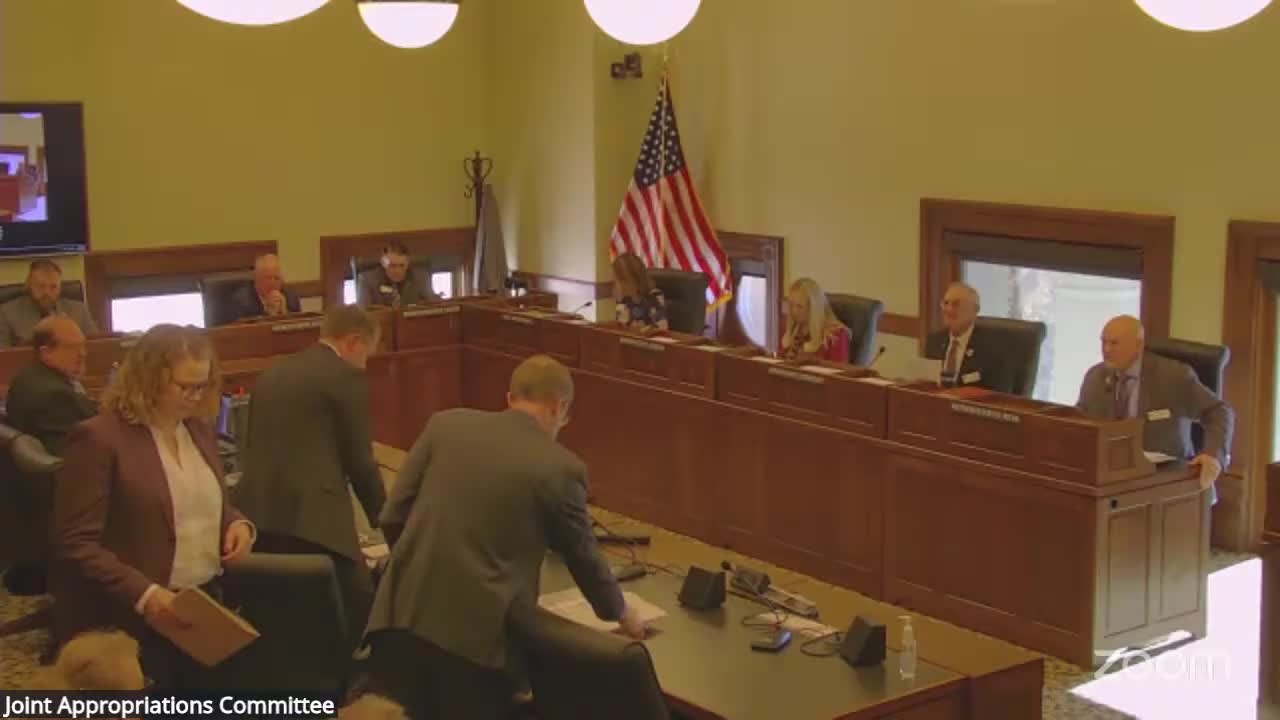Providers and families urge Appropriations to fund DD waiver rate study and boost provider pay as wait list grows
Get AI-powered insights, summaries, and transcripts
Subscribe
Summary
Department of Health officials told the House Appropriations Committee that the DD waiver budget request will blend limited wait‑list funding, funding for emergency high‑acuity cases and a provider‑rate component; DSPs and providers urged the committee to fund a cost study and raise rates to stabilize the workforce.
The Department of Health updated the House Appropriations Committee on Wyoming27s developmental disabilities (DD) waiver programs and said a departmental budget request will blend three elements: limited targeting of the waiting list, funding for "extraordinary care" cases, and a provider‑rate component. The DoH presentation was followed by testimony from direct support professionals (DSPs), providers and family guardians who asked the committee to fund a recent cost study and increase provider reimbursement to stabilize the workforce.
Director Stefan Johansen and Medicaid staff told the committee that the supports waiver served 1,244 people and the comprehensive waiver served 1,701 as of the September report and that the wait list stood at 425 applicants. Johansen said the department27s upcoming budget request will not fully fund the wait list but will propose a blended approach that includes some wait‑list funding, extraordinary care funding for emergent high‑acuity cases, and a portion devoted to provider rates.
Provider and DSP testimony
Multiple DSPs and provider representatives told the committee about recruitment and retention difficulties, low wages (reported frequently at or below local fast‑food pay), high turnover, and how that instability affects individuals on waivers. Testimony described DSP responsibilities that range from medication administration and behavioral support to daily living and employment coaching. One DSP and several provider leaders urged the committee to fund the previously presented cost study (LSO/DoH figure referenced by providers: approx. $24M for full study implementation in rate changes) so agencies could raise wages by roughly $2–$3 per hour and make hiring more competitive.
Program integrity and audit controls
Medicaid program staff described multiple safeguards for claims and provider oversight, including independent case managers (federal requirement), pre‑authorization of services, electronic visit verification for one‑to‑one personal care, data‑mining and analytics in a program integrity unit, and escalation to the Medicaid Fraud Control Unit when fraud or abuse is suspected. Staff said most providers comply and that documentation shortfalls are a common source of recovered claims; DoH described modernization efforts to reduce provider recordkeeping burdens.
What the committee requested next
Members asked for more granular provider financial data, the cost to target higher‑need ("level 6") applicants on the wait list, and clarification of whether a level‑of‑service assessment should be applied while applicants wait. DoH acknowledged tradeoffs: assessing everyone on the wait list could better target scarce slots but would be resource‑intensive and produce a dynamic roster that can change before a spot opens.
Public comment and context
Family guardians and providers gave specific examples of how waivers enabled community living and employment and described how fragile shared household arrangements can be if providers close or staffing fails. The chair said the committee will not preempt the governor27s budget process with a standalone bill and that DD decisions will be addressed as part of upcoming budget deliberations; the subcommittee will continue to gather provider financials and level‑6 targeting options.
Ending note
Appropriations members framed the problem as an urgent staffing and wage issue affecting vulnerable residents; they asked DoH for more targeted data to weigh options and noted that competing statewide priorities will be considered in the budget process.
